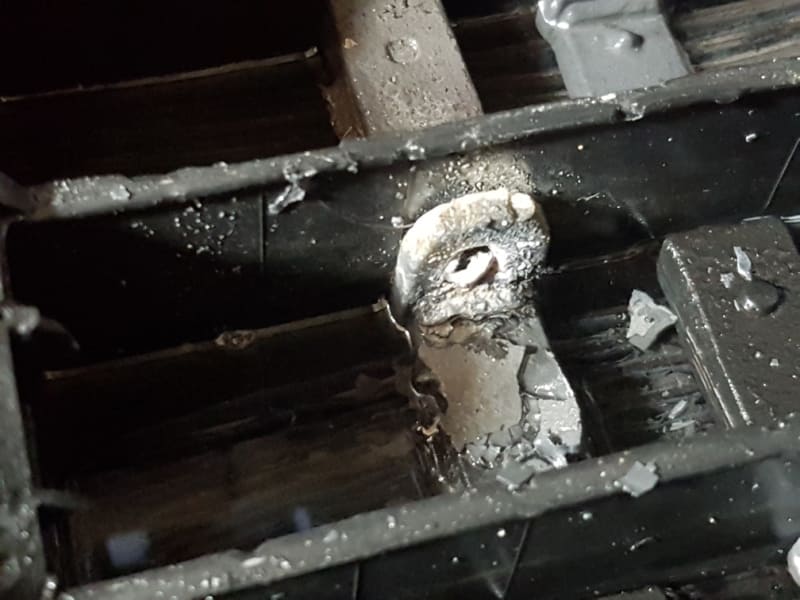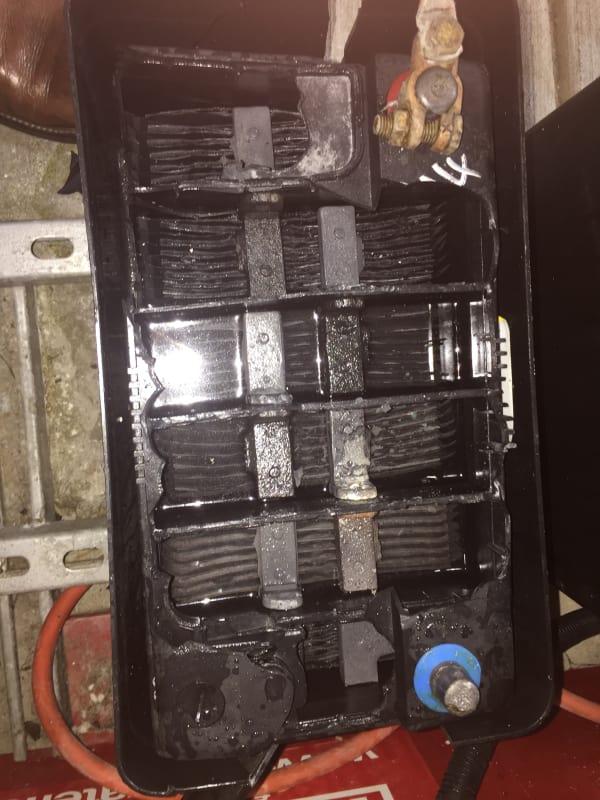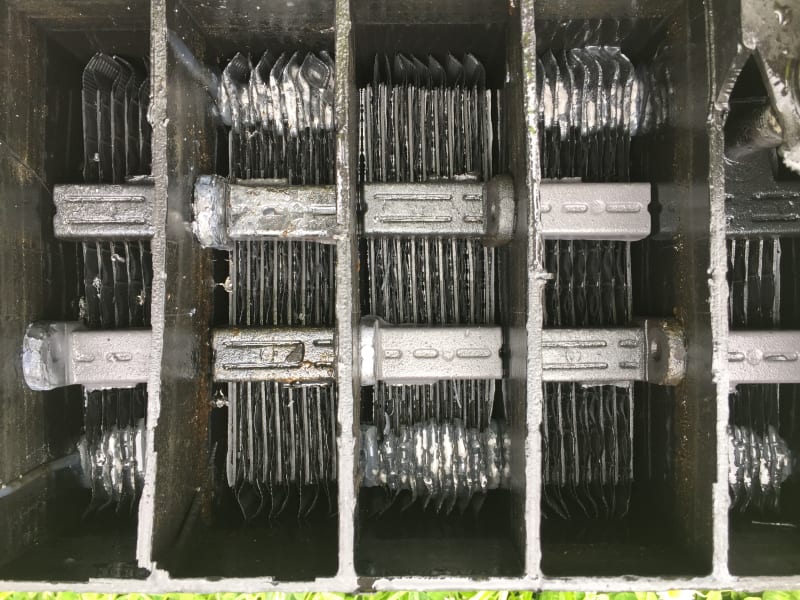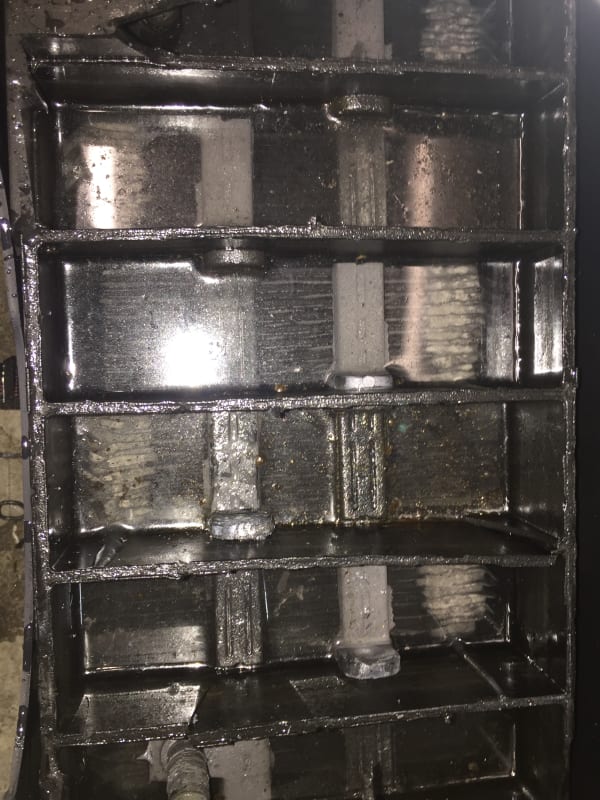Hi there,
This 12V maintainable lead-acid battery runs in series with another to make 24V to start a diesel fire pump. See photo.
The battery exploded from a gas and ignition source, and evidence points to a explosion when the battery was not starting the diesel.
i.e. simply sitting and being float charged.
There must have been hydrogen gas and an arcing ignition source on the cell cross plate as shown in the photo.
What I am confused about is why this would happen??
I checked the other three batteries (2 more for backup starting) and the electrolytes cover the lead plates, even the exploded battery still has electrolyte over the lead plates.
If anyone has any knowledge on this - would be great.
Thanks,
This 12V maintainable lead-acid battery runs in series with another to make 24V to start a diesel fire pump. See photo.
The battery exploded from a gas and ignition source, and evidence points to a explosion when the battery was not starting the diesel.
i.e. simply sitting and being float charged.
There must have been hydrogen gas and an arcing ignition source on the cell cross plate as shown in the photo.
What I am confused about is why this would happen??
I checked the other three batteries (2 more for backup starting) and the electrolytes cover the lead plates, even the exploded battery still has electrolyte over the lead plates.
If anyone has any knowledge on this - would be great.
Thanks,





![[wink] [wink] [wink]](/data/assets/smilies/wink.gif)




